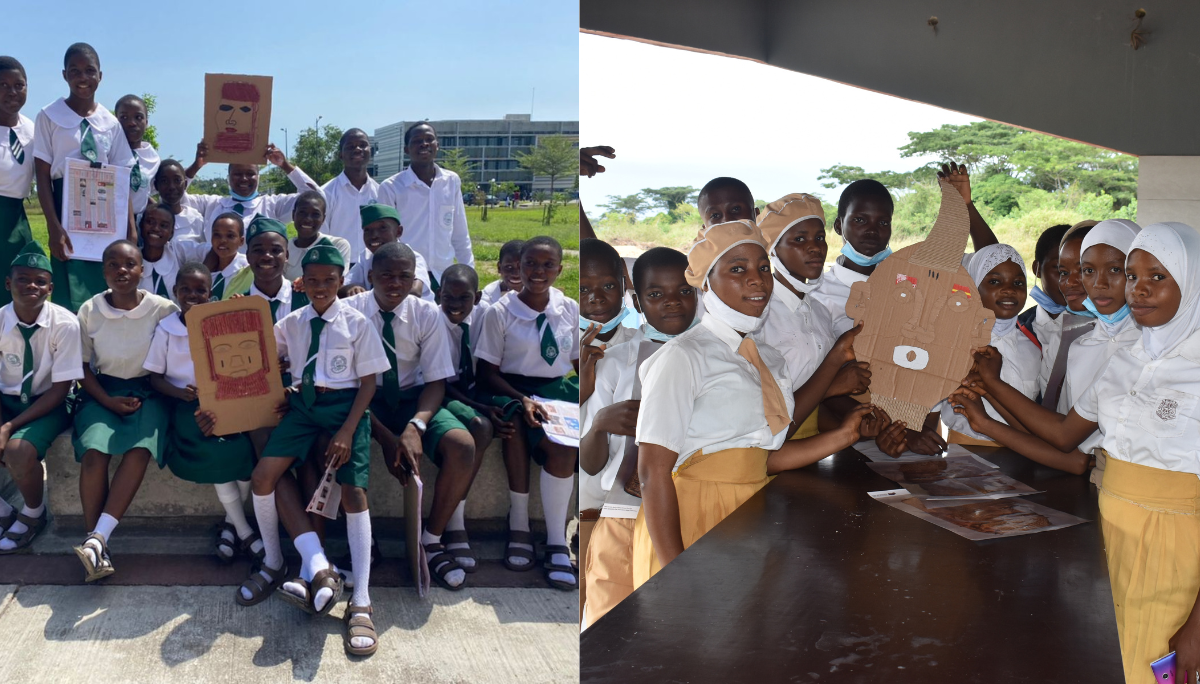
The Yemisi Shyllon Museum of Art (YSMA), Pan-Atlantic University has taken a commendable step in bridging the gap between art, history, and education. In 2021, the museum launched an innovative initiative aimed at imparting knowledge and fostering a deeper appreciation for Nigerian art and history among schools in its surrounding communities. This initiative, known as the Precolonial Societies in Nigeria (PSN) programme, was specifically designed for senior secondary school students (SS1-3) and commenced on May 26, 2021, in collaboration with the Five Cowries Initiative (FCI).
The main objective of the PSN programme is to educate students about the rich civilizations that thrived in precolonial Nigeria. To achieve this goal, the programme employs an object-based methodology, which creates memorable learning experiences for the students. By utilizing artifacts and artworks from the museum's collection, YSMA strives to make history come alive and foster a deep understanding of Nigeria's cultural heritage.
The PSN programme began with a specific focus on the old Benin Kingdom, titled "Igodomigodo: Then, Now, and the Future." This choice was fitting, considering the kingdom's historical significance and its rich collection of art and artifacts. By delving into the history of the Benin Kingdom, students were exposed to a vibrant and advanced civilization that flourished long before colonialism.
The museum also sought to extend the benefits of the PSN program to public schools in the Ibeju-Lekki Local Government Area of Lagos. The participating schools included:
- Ibeju Senior High School
- Community Senior Grammar School Magbon-Alade
- Community Senior High School Orimedu
- Community Senior High School Magbon-Segun
- Lekki Senior High School Ebute-Lekki
- Community Senior High School Akodo-Orofun
- Community Senior High School Debojo
- Community Senior High School Idata-Ilagbo, and
- Community Senior High School Iwerekun.
In line with the YSMA's vision for the programme, the impact of the PSN initiative was far-reaching and positively transformative. Some of the direct impacts observed during and after the programme included:
- Increased knowledge of Nigerian art and history: Through engaging and interactive sessions, students gained a deeper understanding of their country's artistic heritage and historical past.
- Improved Knowledge of the Benin Kingdom: Students acquired valuable insights into the history, art, and cultural achievements of the old Benin Kingdom, contributing to a more comprehensive grasp of Nigeria's history.
- Enhanced Art Appreciation and Design Understanding: By utilizing an object-based approach, the PSN programme fostered an appreciation for the elements of art and design, nurturing creativity and aesthetic sensibilities among students.
- Exposure to Cultural Heritage: The program introduced students to the museum as a valuable site of heritage and history, encouraging a sense of pride in their cultural roots.
- Awareness of Educational Goals of Museums: Participating in the PSN program helped students understand the educational purposes and significance of museums as vital institutions for learning and preserving history.
- Development of Critical Thinking Skills: The interactive nature of the program promoted imaginative, creative, and critical thinking skills, enabling students to analyze historical contexts and make connections between the past and present. In addition to these direct impacts, the PSN programme also had notable indirect effects on the students and schools:
- Increased Passion for Education and Knowledge: Exposure to the rich cultural history of Nigeria and the educational experience at the YSMA sparked a newfound passion for learning and knowledge acquisition among students.
- Interest in Higher Education: The programme's engagement with a university environment piqued students' curiosity about higher education, fostering aspirations for university-level studies.
- Improved School Attendance: The enthusiasm generated by the PSN programme translated into improved attendance and active participation in school activities.
- Positive Character Development: Students displayed a more positive disposition towards learning activities, as the programme instilled a sense of curiosity, respect for cultural heritage, and a desire for continuous growth and development.
- Increased Passion for Education and Knowledge: Exposure to the rich cultural history of Nigeria and the educational experience at the YSMA sparked a newfound passion for learning and knowledge acquisition among students.